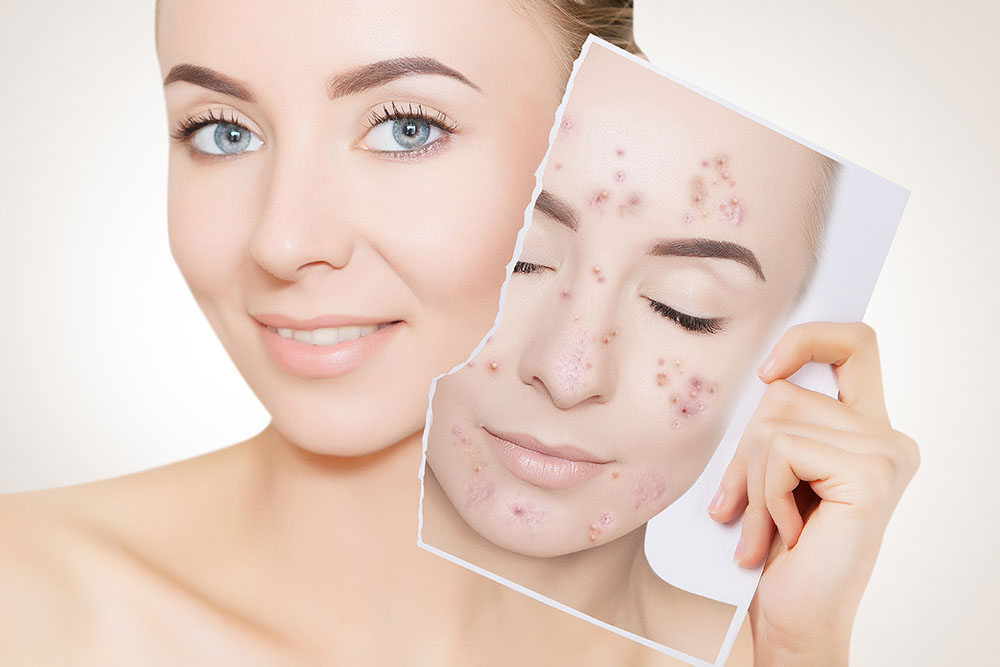Did you know that 8 in 10 teens suffer from acne during puberty? It is so common that it is considered part of normal puberty. Acne can affect the self-esteem of teenagers if left untreated. A family doctor who specializes in pediatrics can help you regain your once smooth and clear-toned face.
Causes of Teen Acne
When skin follicles become clogged due to the accumulation of oil under the skin, this results in pimples. Follicles are blocked by skin cells, sebum and hair clumped together to form a plug. This plug will get infected by bacteria and begin to swell: onset of the pimple. The next time you visit a pediatric doctor, ask them to give you more information about acne causes.
- Increased activity of hormones
Androgens are hormones whose levels increase during the puberty period. They are responsible for the physical changes observed during adolescence. Increased levels of androgen trigger the oil glands below the skin to grow which results in excess sebum production. Excess sebum wears down on the walls of cells within the pores thereby promoting the growth of bacteria.
- Hyperkeratinization
Keratinization involves filling of epithelial cells within the skin with keratin proteins to make them tougher and more resistant to tear and wear. When the deposition of keratin proteins extends beyond the normal range, the thickening results in clogged skin pores.
- P-acne
P-acne is a bacterium that is found within the skin pores and cause inflammation such as red bumps when triggered. P-acne becomes active when a plug of skin cells and sebum block the follicles.
Myths About Acne
Many false truths exist about acne. These myths are not entirely true and may have risen out of individual assumptions.
Wearing lots of make-up is not okay
This is one of the most believed myths about acne. Wearing make-up does not clog the pores within your skin and even helps to cover-up the redness of the pimples on your face. You will become more confident and comfortable wearing make-up.
Foods rich in sugar aggravate pimples
Some people believe that chocolates and sweets cause acne, while others think that acne is caused by not regularly washing your face. It is not true that foods like chocolate and sweets cause acne.
Treatment
Acne treatments come in different medicines and regimens which will actively improve your skin condition. Some of the ways of treating acne include:
- Changing hormone levels
Because hormones have an aggravating effect on pimples, drugs that interfere with their normal levels can help reduce acne. Drugs such as oral contraceptives prescribed by a general doctor can be utilized by girls whose acne worsens during menstruation.
- Wash your face with salicylic acid
When you use salicylic acid to wash your face daily before resting, you can notice a significant improvement in your acne condition. This substance reduces the inflammation caused by acne.
- Use of antibiotics
Your pediatric doctor may recommend you use antibiotics either topical or oral to manage your condition. Topical applications remain the most effective method of administering antibiotics in the treatment of acne.
What can make acne worse?
Hair Products
Hair gel can get into your skin and clog your pores. Such kind of situation only results in increased pimples along the hairline.
Picking & Popping
Scarring damages your face and can reduce confidence. Avoid falling into the temptation of picking and aggravating tough pimples.
Stress
The more stressed you are, the worse your acne will be.
Acne is a normal condition that is experienced by most people during their teenage years. If you are suffering from acne, consult Diamond Physicians for cure and restoration of your confidence in your facial appearance.
